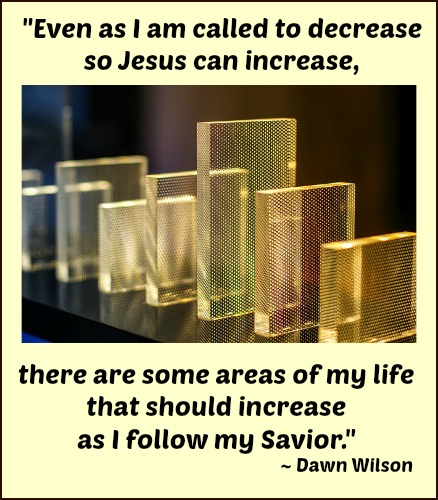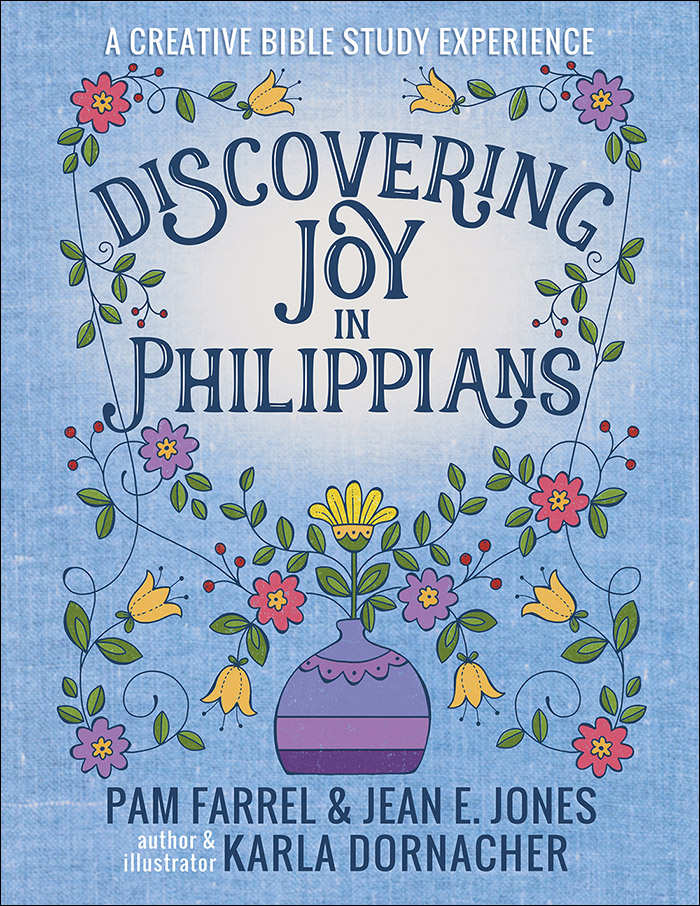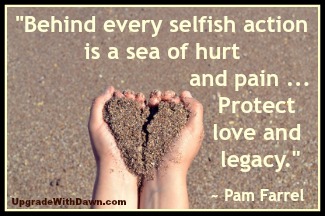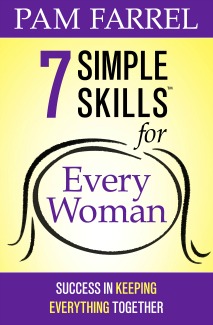The Happy Truth about Valentine's Day
In this Valentine's Day UPGRADE, we can upgrade our understanding of this holiday—what it is and why we celebrate it, and whether Christians should happily take part. First, a little history lesson, and then some positive encouragement.
What Is the Origin of Valentine’s Day?
I debated a man once concerning Valentine’s Day. “So what’s with Christians and Valentine’s Day,” he said. “Why celebrate a pagan holiday?”
To be honest, I stumbled around with my answers. I really didn’t know much about the celebration’s background, and the theories I put forth were woefully weak. Later, I decided to study it out; and maybe what I discovered will help you too.
St. Valentine’s Day, like St. Patrick’s Day, is popular in Europe and the modern west. While there are texts by Patrick himself that tell us about the godly man and help explain why he is celebrated, the origin of Valentine and Valentine’s Day aren’t entirely clear.
In secular articles, you’re sure to read about the pagan origins of Valentine’s Day. And in religious articles, the story is all about a martyred saint.
So which is right?
Maybe a little of both.
Some historians say the likely origin of the holiday was the ancient Roman festival, Lupercalia, which was celebrated on February 15th. Lupercalia was a fertility festival dedicated to Faunus, the Roman god of agriculture, but also to the Roman founders, Romulus and Remus, who were believed to have been cared for as infants by a wolf (a lupa).
The fertility festival was quite involved, ending with young women placing their names in an urn and bachelors drawing names to pair off for the year, a practice that often led to marriage.
Pope Gelasius (5th century) abolished the fertility festival for its “un-Christian” practices, and replaced it with a day honoring St. Valentine.
The term “Volantynys day” showed up in a romantic, 14th century poem, “Parliament of Fowls,” by Geoffrey Chaucer. The poem explicitly linked romantic love to Valentine. The concept behind the poem is that a group of birds gather on “seynt valentynes day” to choose their mates—hence, the day’s romantic theme. By the 15th century, lovers sent each other love notes on Saint Valentine’s Day.
For some reason, Cupid was later added into the Valentine’s Day mix. The Cupid figure was originally Eros, the son of Aphrodite, in Greek mythology. Later, in Roman mythology, the name was switched to Cupid, the son of Venus. In both cases, he was the son of the mythical goddess of love and armed with a bow and two kinds of arrows—gold arrows to spark love and lead arrows to ignite hate.
Cupid was devious and played on his targets’ emotions. In later writings, Cupid was portrayed as a mischievous cherub, and later still, he became something like a mascot for Valentine’s Day.
February 14 is listed on the “Calendar of Saints” in Anglican and Lutheran churches, but the Roman Catholic Church practiced it as a local celebration. The Eastern Orthodox Church celebrated Saint Valentine’s Day too, but on July 6.
The modern-day celebration is a romantic holiday, primarily developed in Victorian England. It included the giving of cards, flowers, and chocolates. Commercialized Valentine’s Day cards were created in the early to mid-19th century. In some countries, the day is considered a celebration of friendship rather than romance.
The oldest known written valentine is at the British Library in London, written in 1415 by Charles, Duke of Orleans, to his wife—from his prison cell in the Tower of London.
But what about Valentine himself?
Was Valentine a Martyred Saint?
The name “Valentine” was a popular name, with about a dozen early Christians having that name. The Catholic church recognizes at least three Christians named Valentine or Valentinus. All three were Christian martyrs, like Bishop Valentine of Terni who was beheaded.
Tradition, however, embraces Valentine of Rome, an Italian bishop who was killed on February 14, 296 AD, at the command of Emperor Claudius Gothicus of Rome.
As the story goes, Claudius decided that single men would make better soldiers than those who had wives and families, so he outlawed marriage for young men. Feeling this was an injustice, Valentine defied the emperor and continued to perform secret marriages for young lovers.
Emperor Claudius, angered to hear about Valentine's actions, interviewed Valentine and told him he could only escape death if he converted to paganism.
Instead, Valentine tried to convert Claudius to Christianity!
So was Valentine a true Christian? Unlike "St. Patrick," we don't know what Valentine believed about Jesus or salvation.
Only God knows Valentine's heart, just as He knows our hearts.
Stories about him were likely embellished to solidify his commemoration as a Catholic saint.
For example, prior to his execution, it’s said Valentine healed a jailer’s blind daughter, Julia, who encouraged him in prison. Some renditions of this account say he wrote a letter to Julia before his death, signing it, “Your Valentine.”
It’s also said that he gave parchment hearts to soldiers and to persecuted Christians to remind them of God’s love. Some stories suggest Valentine was killed for trying to help Christians escape torture in Roman prisons.
While the Valentine stories are murky, in all accounts, he was heroic and he deeply loved God.
Should Christians Celebrate Valentine’s Day?
So how does all this play out for Christians? A writer at the Bible research site Compelling Truth says that the holiday is “neither biblical nor anti-biblical.”
The Happy Truth about Valentine's Day is that it is permissible to celebrate, but perhaps in a uniquely Christian way.
“Christians are free regarding the celebration of Valentine’s Day,” the writer said. “There are many positive things to be said about celebrating love for one another.
There is nothing inherently wrong with expressing love through cards and gifts on a specific day of the year. "But there is nothing inherently righteous about it either," the writer said, "and we should also express our love for one another throughout the year and in a variety of ways.”
Valentine's "sainthood" is an issue for some. It's important to note that in early translations, believers in the Bible are called “saints,” meaning “holy ones” (Acts 9:32; Romans 16:2; Ephesians 4:12; Philippians 4:21)—even though some of them might have had serious sin problems. In some newer translations, they are simply called "the Lord's people" or "believers"—perhaps as a reaction to the misuse of the term "saint."
There is no such thing biblically as "sainthood" as it expressed by the Catholic Church.
- But there’s nothing wrong with commemorating Christian martyrs or faithful Christians in the past.
- Neither is there a biblical mandate to commemorate them.
In the article, “Valentine’s Day Belongs to God,” Jon Bloom at Discovering God says, “So what should Christians make of today’s Valentine’s Day?
"As much as purely possible!”
Bloom notes that “Valentine was a saint and Eros (love) in not Cupid’s domain.” So, he says, Christians should be “the most unashamed and exuberant celebrators of romantic love there are, and the strongest guardians of God’s design and boundaries, because God made it for us to enjoy, along with many other things (1 Timothy 6:17b).” For example, Song of Solomon is packed with intoxicating, romantic love. Solomon was intoxicated with his bride!
The mystery of married love is to be celebrated (Proverbs 18:22; Ephesians 5:21-33; 1 Peter 3:1-7), and yet it is only a shadow of what is to come, Bloom said. He calls God the “greatest romantic in existence,” and said our Creator has designed romance to give us “a taste of the greatest romance that will ever exist, of which all Christians will experience.”
What does Bloom mean? At the marriage supper of the Lamb, when we drink the wine with our Groom and enjoy spiritual intimacy with Him that we had only previously known in metaphors (Revelation 19:6-8).
Four closing thoughts:
1. Valentine’s Day should not be something used to divide God’s people.
How should Christians deal with disagreement in the Body of Christ about Valentine’s Day? Biblically!
Paul wrote about special days:
One person esteems one day as better than another, while another esteems all days alike. Each one should be fully convinced in his own mind (Romans 14:5).
In other words, we may not think the same concerning special "days," and we need to be careful in judging other believers. (Be sure, when you take issue with other Christians, that there's a biblical truth behind your concerns; and if you do share concerns, do it in a spirit of humility and love.)
2. Every day is a good day to celebrate biblical love.
Christians may disagree with the whole premise of Valentine's Day, but they can always celebrate the human loves God gives us.
- We can celebrate the love of a spouse.
- We can celebrate the love of our family and extended family.
- We can celebrate the love of friends.
- We can celebrate the love of those who have served and blessed us.
3. Use Valentine’s Day as a reminder of a greater love.
Valentine’s Day can be a might be a positive prompt for us to remember the love that surpasses all earthly loves.
First, there is the love of God for us in sending His Son, and second, there is the love of Jesus in becoming our Savior (Romans 5:8; 1 John 4:14).
And then their great love prompts us to love others (John 13:34; 15:12; Ephesians 5:2).
4. What might you say to Valentine?
Assuming Valentine genuinely trusted in Jesus, rejoice that you might meet him in heaven.
What would you say to him? Would you want to chat with him and all the others throughout history who died for their confession of faith in Jesus.
I think it would be wonderful to thank Valentine for modeling genuine love—in life and in his martyrdom.
How might you use Valentine’s Day to focus on your earthly loved ones and the One who loved you so much that He died for you?
Dawn Wilson, founder and President of Heart Choices Today, is a speaker and author,  and the creator the blog, Upgrade with Dawn. She is a regular columnist at Crosswalk.com. Dawn and her husband Bob live in sunny Southern California, and she has traveled with Him in Pacesetter Global Outreach. They have two grown, married sons, three granddaughters and a rascally maltipoo, Roscoe.
and the creator the blog, Upgrade with Dawn. She is a regular columnist at Crosswalk.com. Dawn and her husband Bob live in sunny Southern California, and she has traveled with Him in Pacesetter Global Outreach. They have two grown, married sons, three granddaughters and a rascally maltipoo, Roscoe.
Graphic adapted, courtesy of Monkia at Pixabay.
 Post a Comment → Posted on
Post a Comment → Posted on  Monday, February 12, 2024 at 9:44AM
Monday, February 12, 2024 at 9:44AM  Biblical Love,
Biblical Love,  Christian love,
Christian love,  Love,
Love,  St. Valentine,
St. Valentine,  Valentine,
Valentine,  Valentine's Day Upgrade Your Life
Valentine's Day Upgrade Your Life  Loving God,
Loving God,  Loving People,
Loving People,  Valentines Day
Valentines Day 















